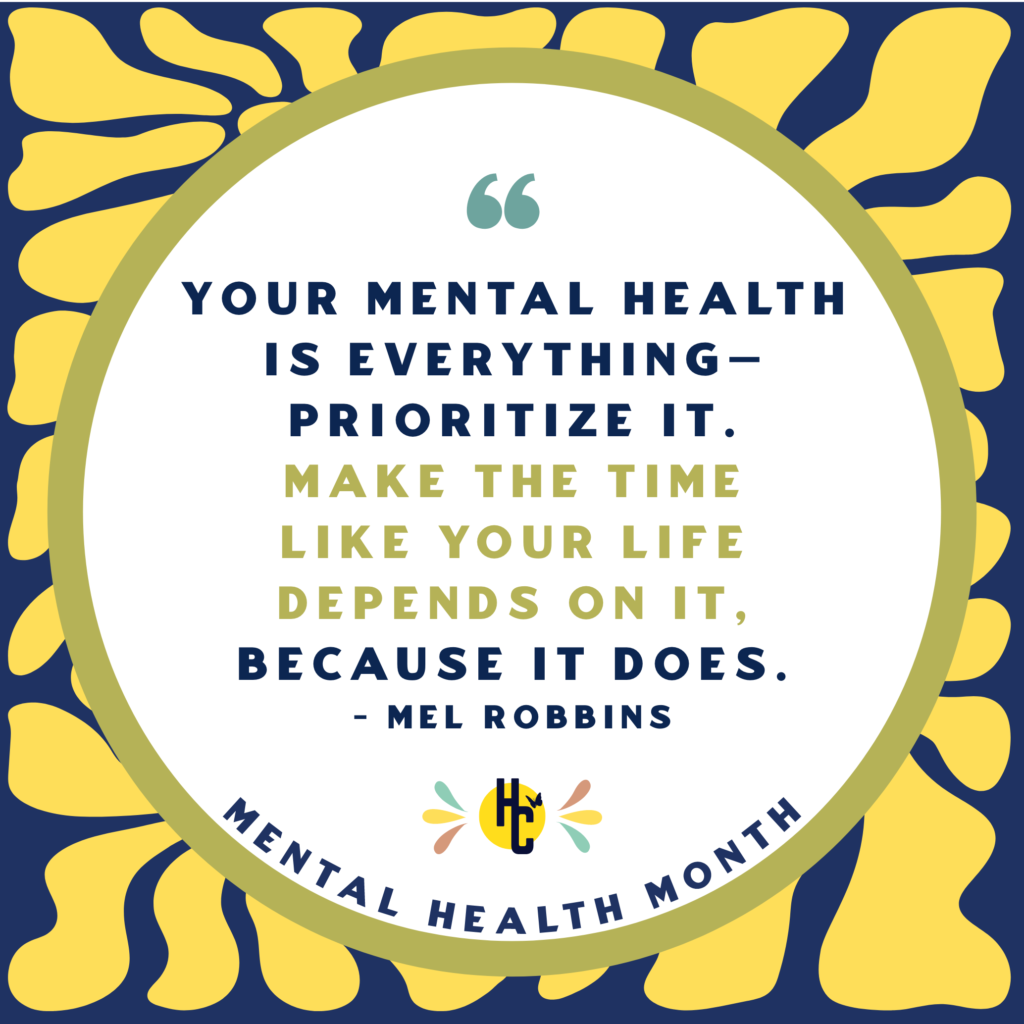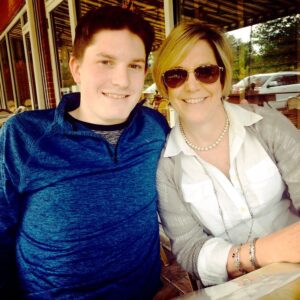Honor Connor | Mental Health Awareness Month
May is Mental Health Awareness Month – a time to open the conversation, reduce stigma, and reflect on how we care for ourselves and those around us. At Honor Connor, where our mission centers around suicide prevention and support for those who have lost someone to suicide, this year’s theme, “Be Kind to Your Mind,” carries deep meaning.
We know that mental health isn’t just about avoiding crisis. It’s about nurturing ourselves in ways that build strength, hope, and connection – especially in the face of grief, trauma, or deep emotional pain. And one of the most powerful ways to do that is by building capacity.
What Does It Mean to Build Capacity?
Capacity is your emotional reserve – your inner space to process, respond, grieve, breathe, and begin again. When your capacity is low, even small challenges feel overwhelming. But when you intentionally grow that space through consistent care and support, you create more room to live fully – even with grief, even with pain.
As RaQuel Hopkins, Capacity Expert and Certified Coach & Therapist, wisely says: “Coping is surviving, but it’s not living.”
At Honor Connor, we support those who are surviving unimaginable loss. But we also believe in helping each other move toward something more – to slowly and gently reclaim life, meaning, and healing.

Ways to Build Capacity
Your nervous system is not meant to be in fight-or-flight all the time. Rest is not optional – it’s essential. Take breaks before you’re at your limit. Give yourself permission to say, “I need to slow down.”
Boundaries are not about pushing people away; they’re about protecting what you need to feel safe, rested, and whole. Saying no creates space to say yes to what matters.
After losing Connor, I found I couldn’t engage in small talk. It felt hollow – even painful – when my heart was carrying so much grief. I began to avoid social situations where surface-level conversations would happen. Not because I didn’t care about others, but because I needed to protect the little capacity I had. Saying no in those moments wasn’t about shutting people out – it was an act of self-preservation and kindness to my grieving heart.
Over time, though, as I gently gave myself space to heal, I found I could re-enter those conversations. I began to recognize the quiet power of everyday connection – even in small moments. And I also stopped avoiding the deeper truths of my story. I gave myself permission to talk about what really mattered to me, even if the conversation felt hard. It became less about protecting myself from discomfort, and more about honoring what I needed – and offering others a chance to meet me there, too.

A Suicide Prevention Lens on Mental Health
When we speak of suicide prevention, we’re not just talking about hotline numbers or crisis plans – though those are vital. We’re also talking about upstream solutions: building capacity, creating community, fostering resilience, and helping people believe that there is still a path forward.
And when we walk alongside suicide loss survivors, we acknowledge that healing is not linear, and there’s no right timeline. But we can build capacity for hope – one breath, one choice, one day at a time.
As Mel Robbins reminds us:
“Your mental health is everything – prioritize it. Make the time like your life depends on it, because it does.“
You don’t have to have it all together. You don’t have to pretend you’re fine. You can be grieving and still growing. You can be broken and still worthy of joy.
This May, and always, we invite you to treat your mind with gentleness. To give yourself permission to rest. To build capacity not just to survive, but to live – truly live – with all the beauty, mess, heartbreak, and hope that comes with it.


Founder & Manager Director
Dealing with the loss of a loved one to suicide is complicated. We’re here help start the conversation & stop the stigma.
SAMHSA’s National Helpline: 1-800-662-HELP (4357)
Mental Health America: www.mhanational.org
Honor Connor Blog